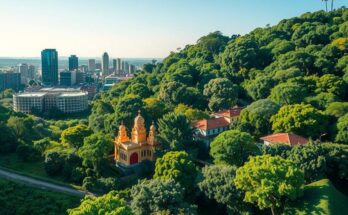A South Korean lawmaker reported that a captured North Korean soldier wishes to lead a “normal life” in South Korea. The revelation aligns with South Korea’s policy to grant citizenship to North Korean troops. Lawmaker Yu Yong-weon shared details of the soldiers’ conditions and the implications of repatriating them to North Korea, stressing the constitutional rights of these individuals.
On March 4, a South Korean lawmaker disclosed that a North Korean soldier captured by Ukrainian forces expressed a desire to lead a “normal life” in South Korea. This revelation follows South Korea’s commitment to grant citizenship to North Korean troops, in line with constitutional protections for all Koreans, regardless of their location. Lawmaker Yu Yong-weon reported his emotional meeting with the detained soldiers, during which one soldier conveyed his wish to reunite with his family and live freely in the South.
The captured soldiers, currently held in a Ukrainian detention facility, faced inquiries about their future in South Korea. One soldier allegedly sought assurance regarding his rights and the possibility of establishing a family. Yu emphasized the critical matter of returning the soldiers to North Korea, labeling such action as a potential death sentence, as North Korean military doctrine encourages suicide over capture.
Yu further highlighted the tragic circumstances surrounding North Korean defectors, noting reports of suicides among comrades who faced injury or capture. He reiterated that even as prisoners of war, they are entitled to South Korean citizenship protections under the nation’s Constitution. Notably, in 2019, the South Korean government controversially expelled two North Korean fishermen who had committed murder, marking a significant instance of transferring individuals back to the North since the Korean War.
The situation surrounding the North Korean soldier underscores the complexities of international law and human rights concerning prisoners of war. South Korea’s constitutional stance on citizenship for all Koreans plays a pivotal role in dictating the fate of these soldiers. The emotional pleas from the captured troops reveal not only their dire circumstances but also the potential for future reunification and human rights considerations in the region.
Original Source: www.straitstimes.com




